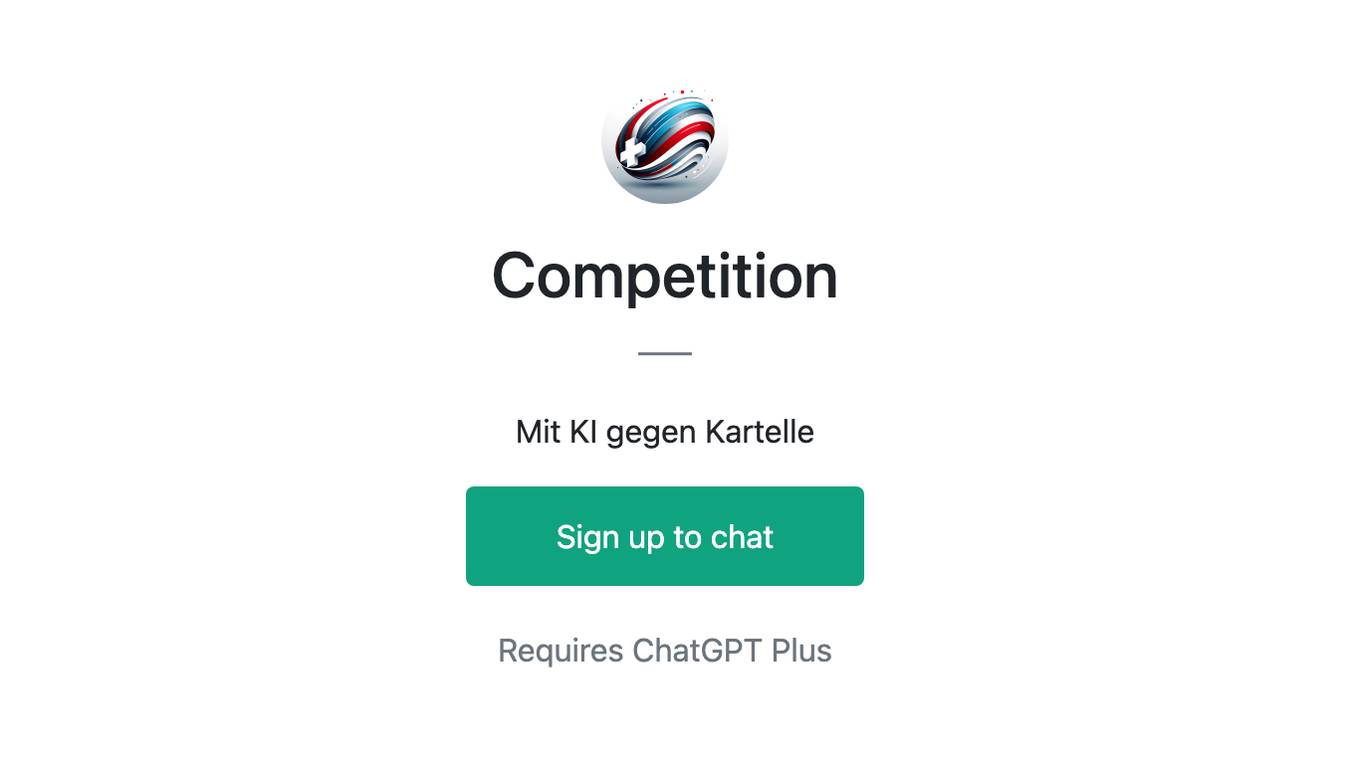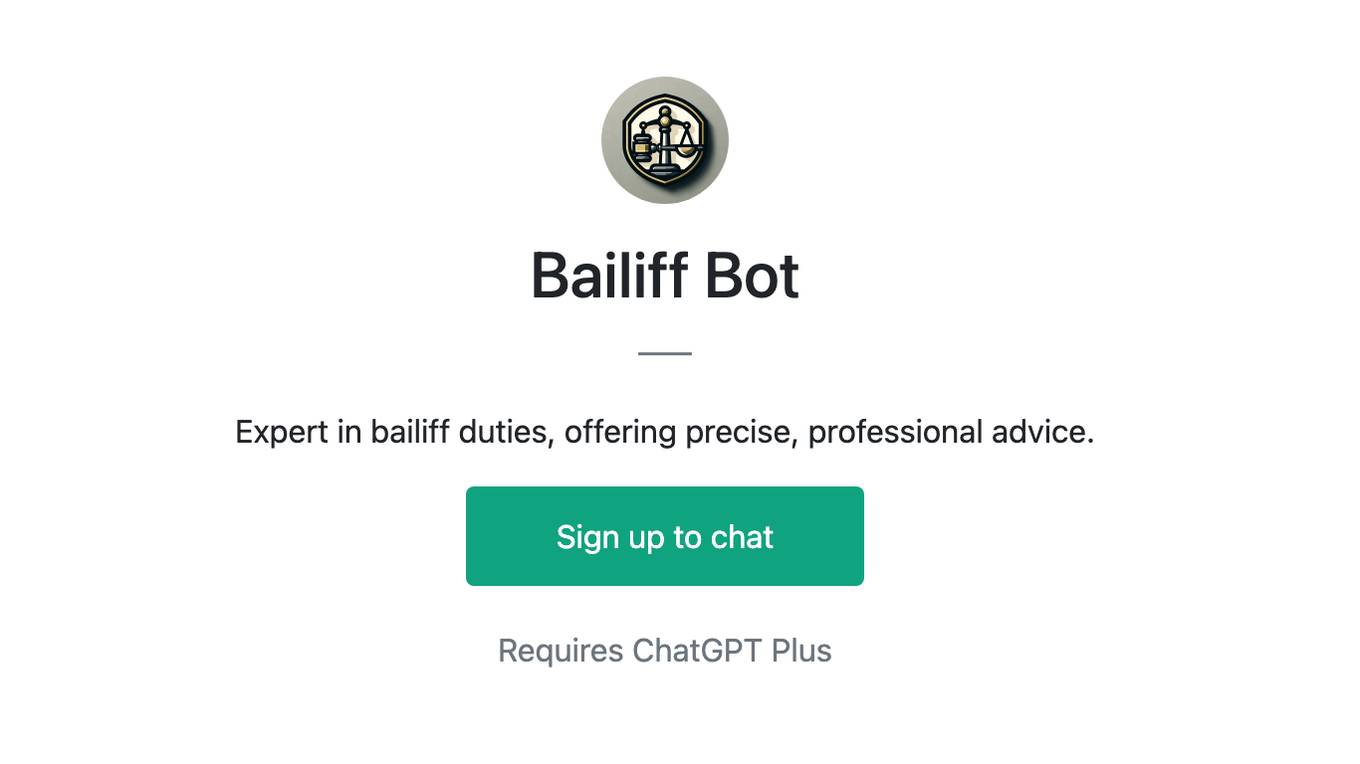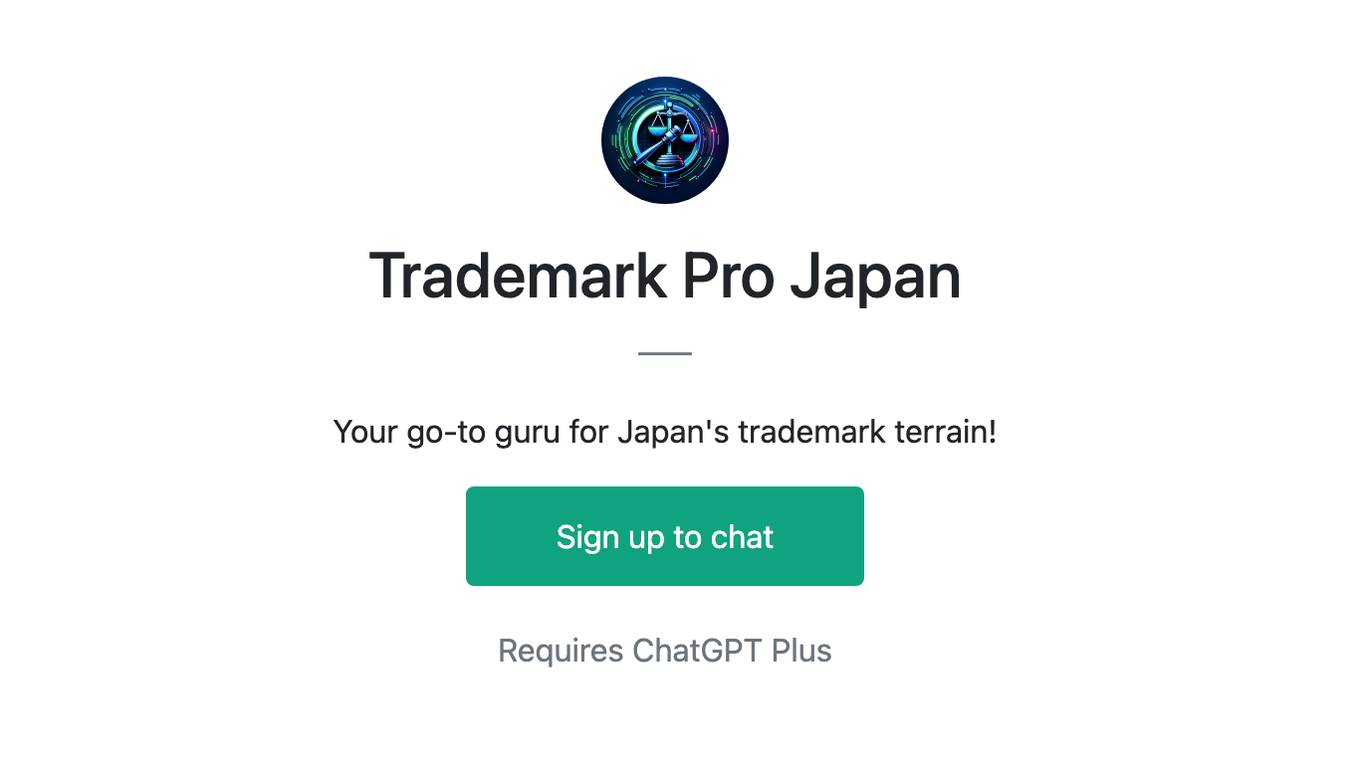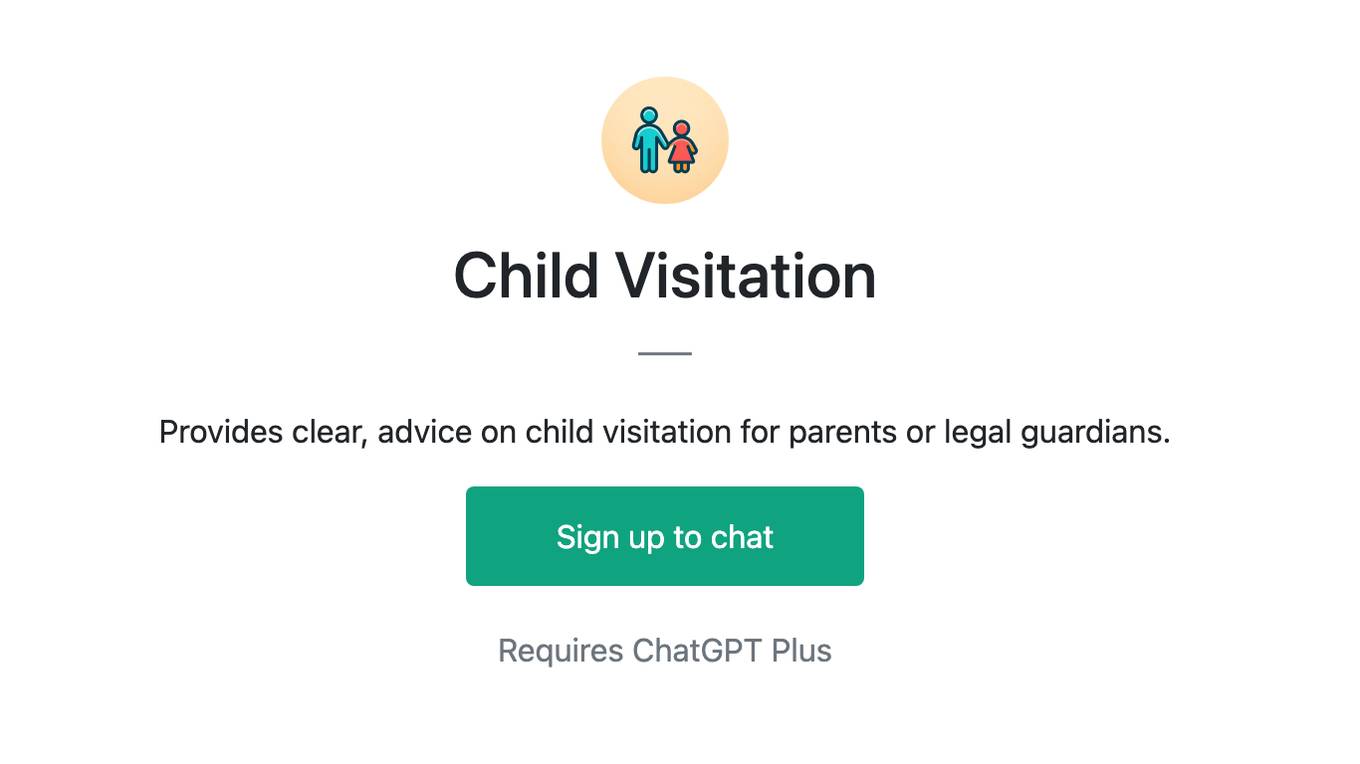Best AI tools for< Enforce Policies >
20 - AI tool Sites
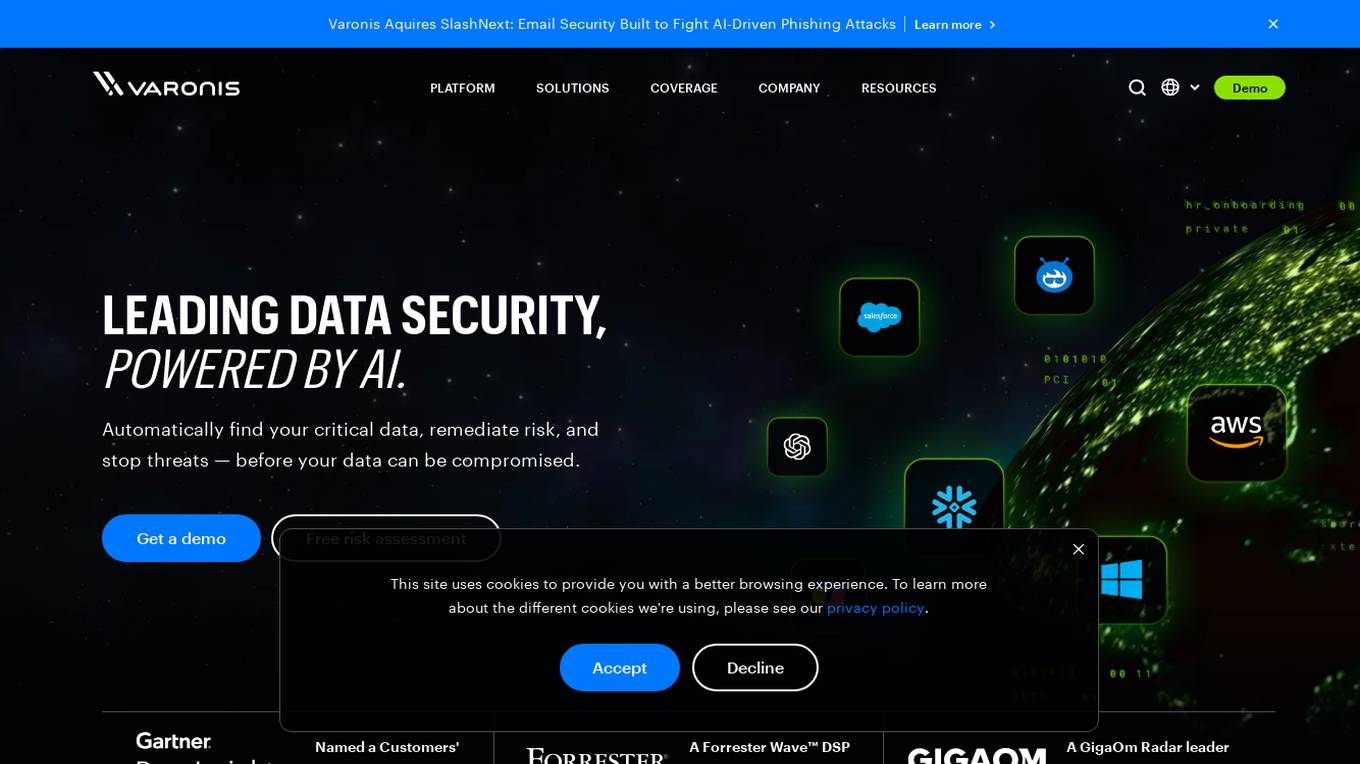
Varonis
Varonis is an AI-powered data security platform that provides end-to-end data security solutions for organizations. It offers automated outcomes to reduce risk, enforce policies, and stop active threats. Varonis helps in data discovery & classification, data security posture management, data-centric UEBA, data access governance, and data loss prevention. The platform is designed to protect critical data across multi-cloud, SaaS, hybrid, and AI environments.
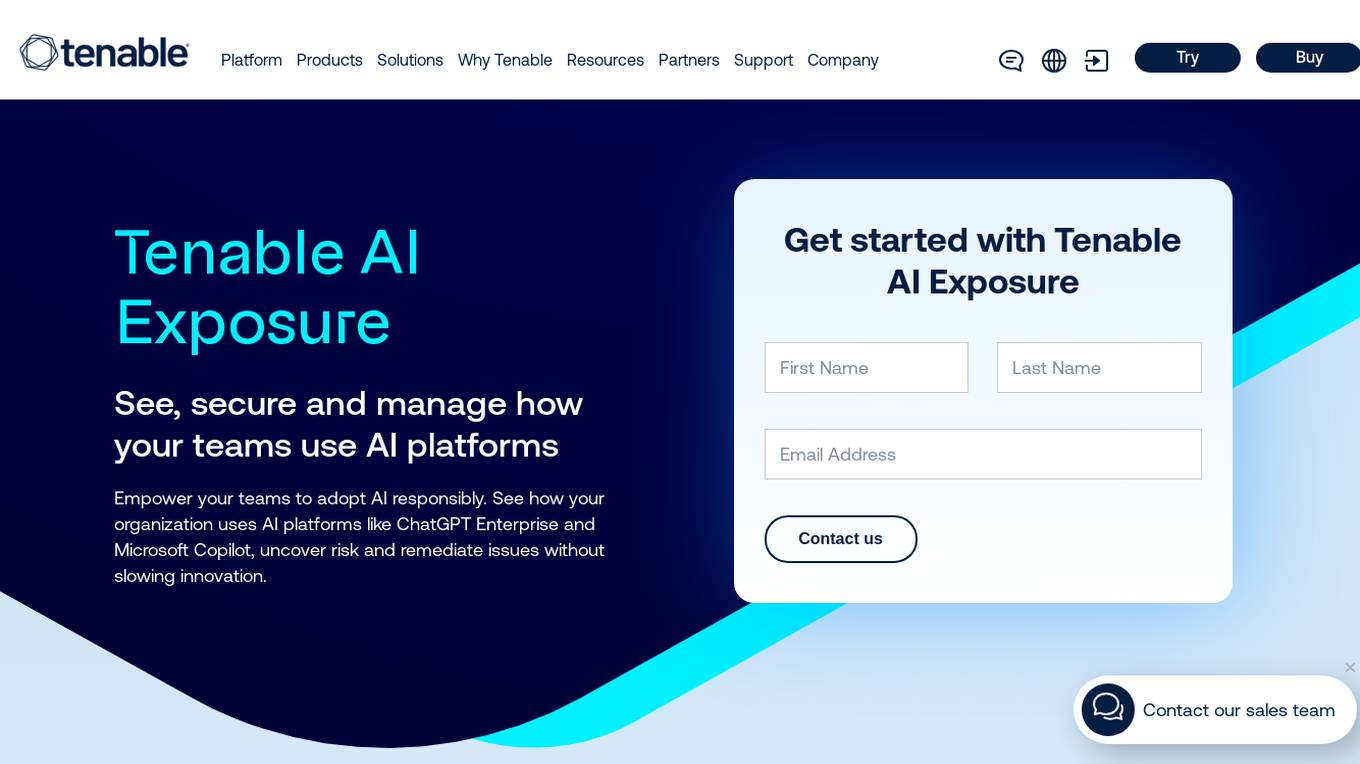
Tenable AI Exposure
Tenable AI Exposure is an AI tool that helps organizations secure and understand their use of AI platforms. It provides visibility, context, and control to manage risks from enterprise AI platforms, enabling security leaders to govern AI usage, enforce policies, and prevent exposures. The tool allows users to track AI platform usage, identify and fix AI misconfigurations, protect against AI exploitation, and deploy quickly with industry-leading security for AI platform use.
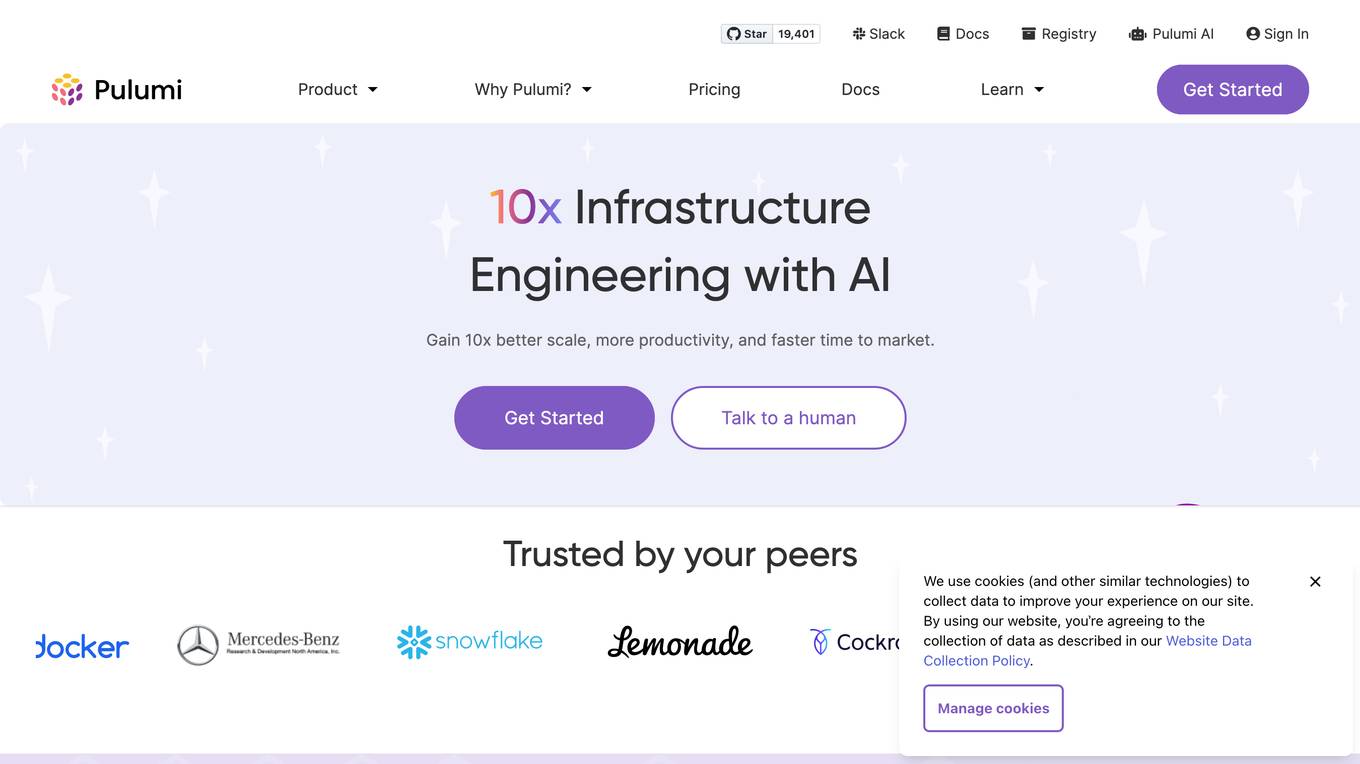
Pulumi
Pulumi is an AI-powered infrastructure as code tool that allows engineers to manage cloud infrastructure using various programming languages like Node.js, Python, Go, .NET, Java, and YAML. It offers features such as generative AI-powered cloud management, security enforcement through policies, automated deployment workflows, asset management, compliance remediation, and AI insights over the cloud. Pulumi helps teams provision, automate, and evolve cloud infrastructure, centralize and secure secrets management, and gain security, compliance, and cost insights across all cloud assets.
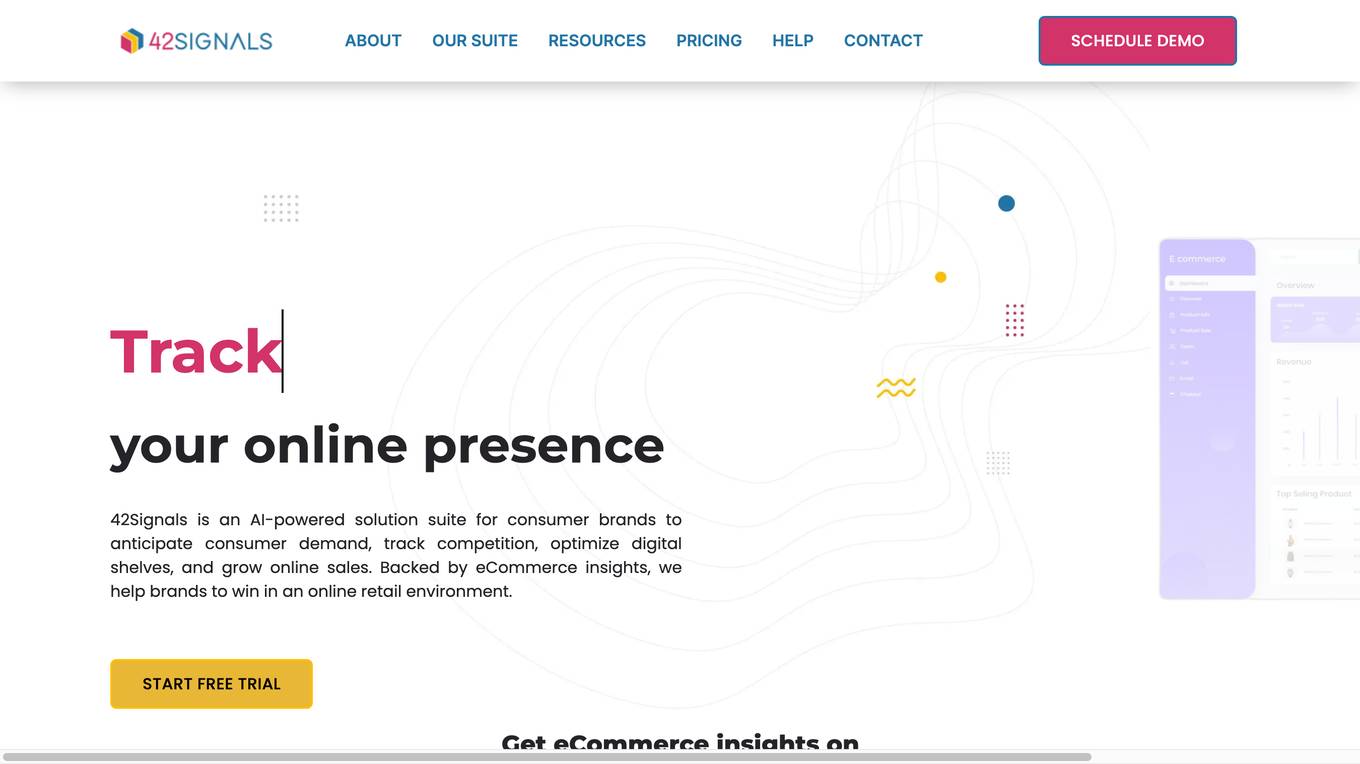
42Signals
42Signals is an AI-driven eCommerce analytics software that provides real-time insights and analytics for consumer brands. It empowers businesses to anticipate market trends, monitor competitors, optimize digital shelves, and drive sales growth with unmatched accuracy and speed. The platform offers a suite of tools including Digital Shelf Analytics, Competitor Analysis, Voice of Customer Analytics, and more to help businesses dominate the digital marketplace.
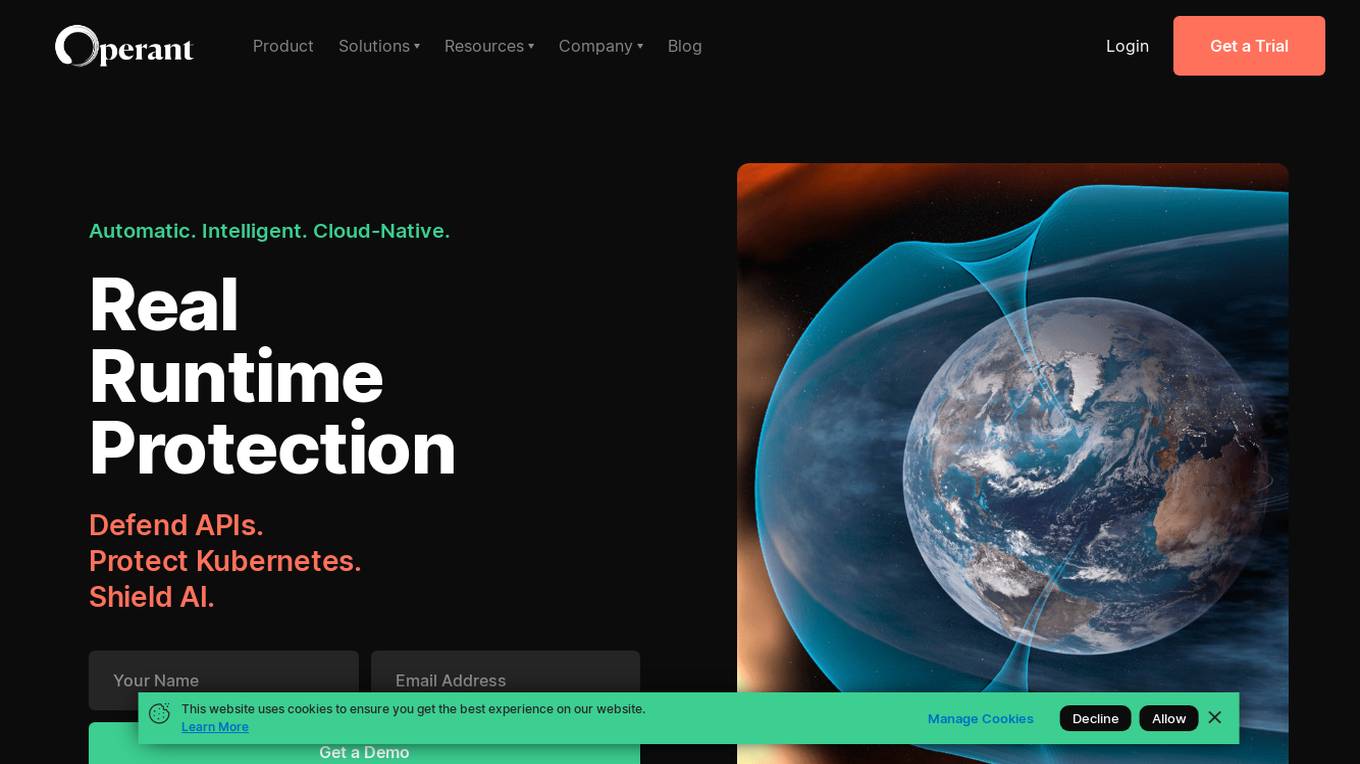
Operant
Operant is a cloud-native runtime protection platform that offers instant visibility and control from infrastructure to APIs. It provides AI security shield for applications, API threat protection, Kubernetes security, automatic microsegmentation, and DevSecOps solutions. Operant helps defend APIs, protect Kubernetes, and shield AI applications by detecting and blocking various attacks in real-time. It simplifies security for cloud-native environments with zero instrumentation, application code changes, or integrations.
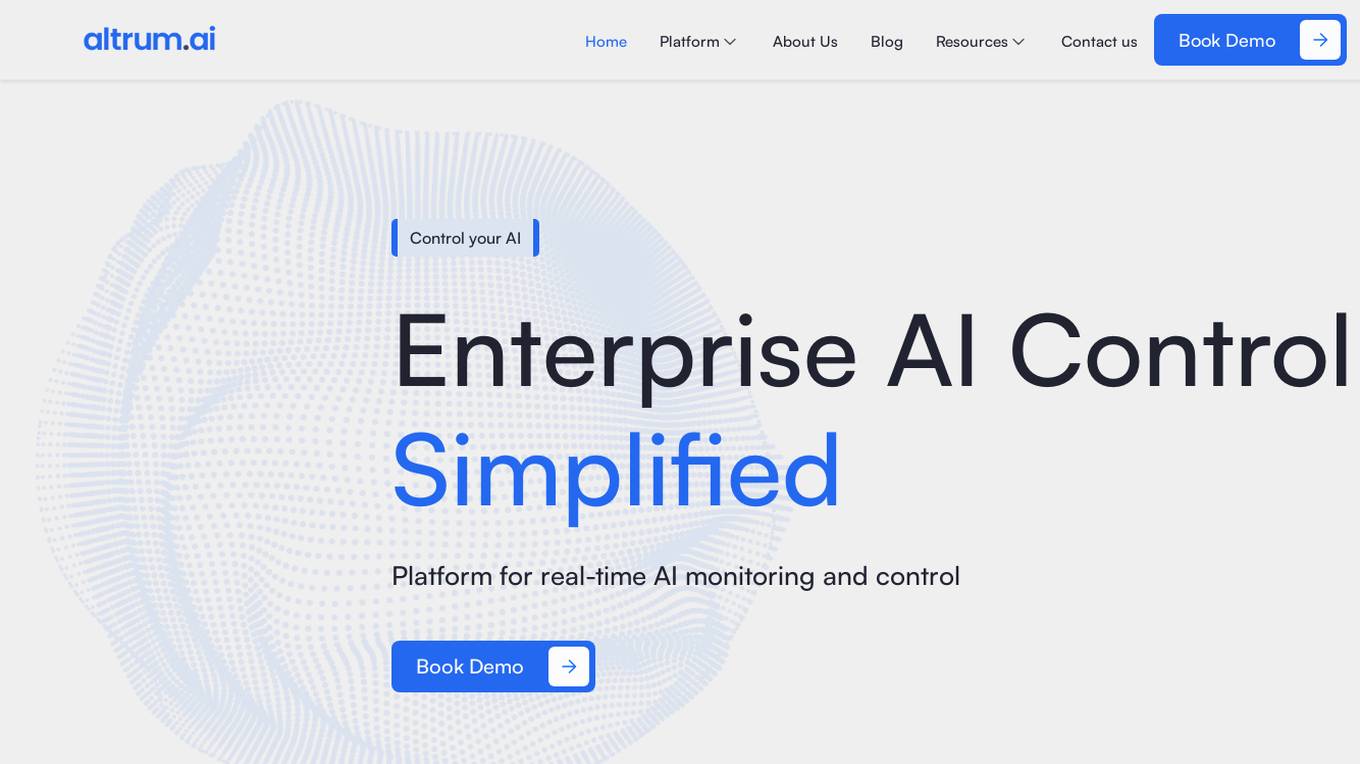
AltrumAI
AltrumAI is an AI application that provides a platform for enterprises to control and monitor their AI systems in real-time. It offers solutions for deploying and scaling AI safely and compliantly, addressing compliance, security, and operational risks. The application empowers teams with intuitive policy configuration and enforcement, ensuring secure and seamless integration of Generative AI across the enterprise. AltrumAI aims to mitigate risks such as bias, data leaks, and unreliable AI outputs, while providing comprehensive AI risk coverage through guardrails and real-time monitoring.
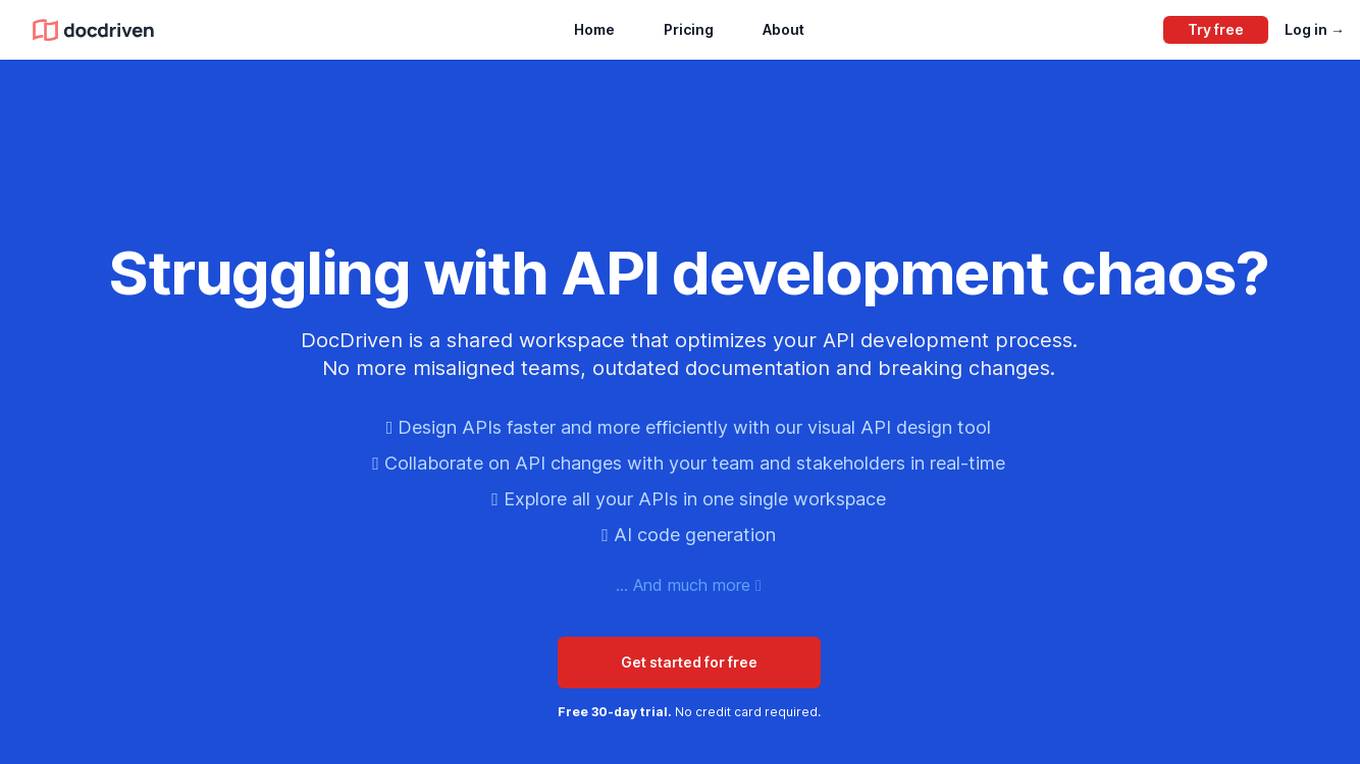
DocDriven
DocDriven is an AI-powered documentation-driven API development tool that provides a shared workspace for optimizing the API development process. It helps in designing APIs faster and more efficiently, collaborating on API changes in real-time, exploring all APIs in one workspace, generating AI code, maintaining API documentation, and much more. DocDriven aims to streamline communication and coordination among backend developers, frontend developers, UI designers, and product managers, ensuring high-quality API design and development.
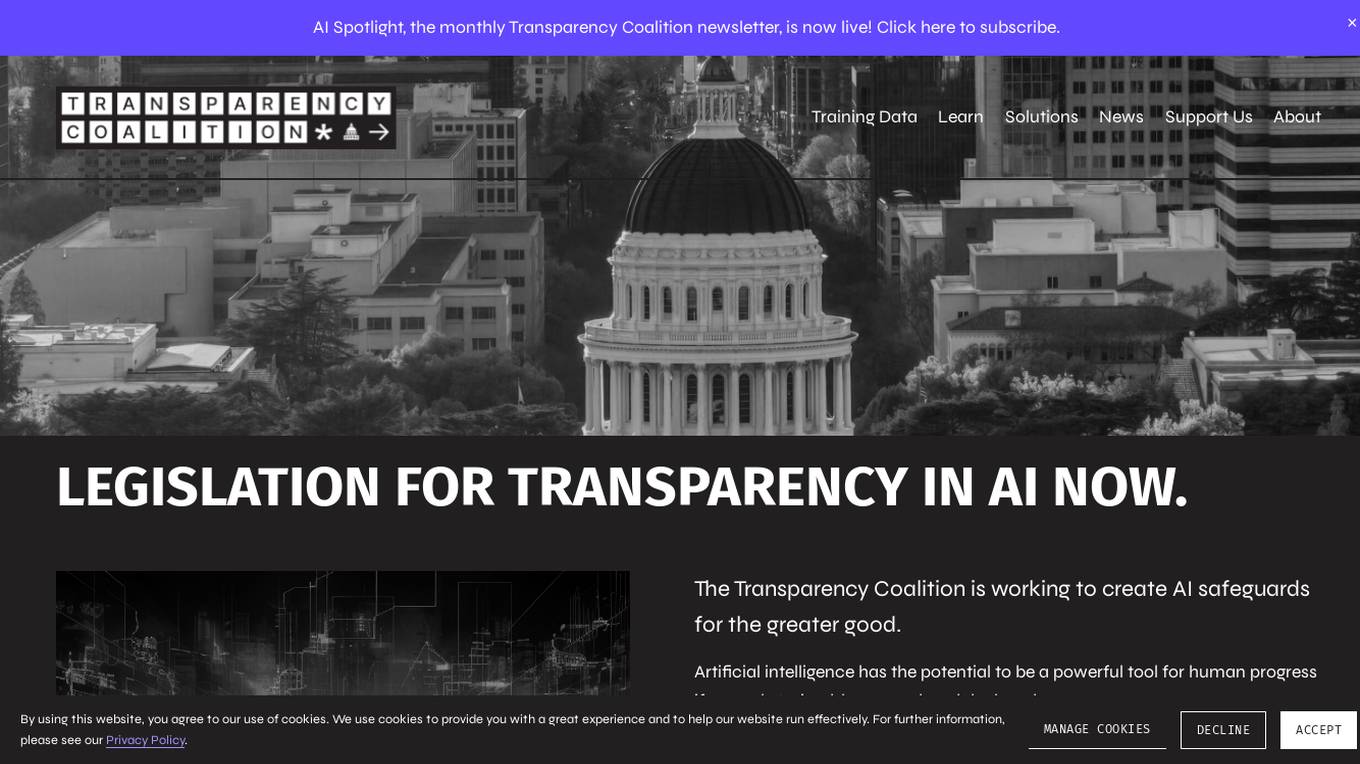
Transparency Coalition
The Transparency Coalition is a platform dedicated to advocating for legislation and transparency in the field of artificial intelligence. It aims to create AI safeguards for the greater good by focusing on training data, accountability, and ethical practices in AI development and deployment. The platform emphasizes the importance of regulating training data to prevent misuse and harm caused by AI systems. Through advocacy and education, the Transparency Coalition seeks to promote responsible AI innovation and protect personal privacy.
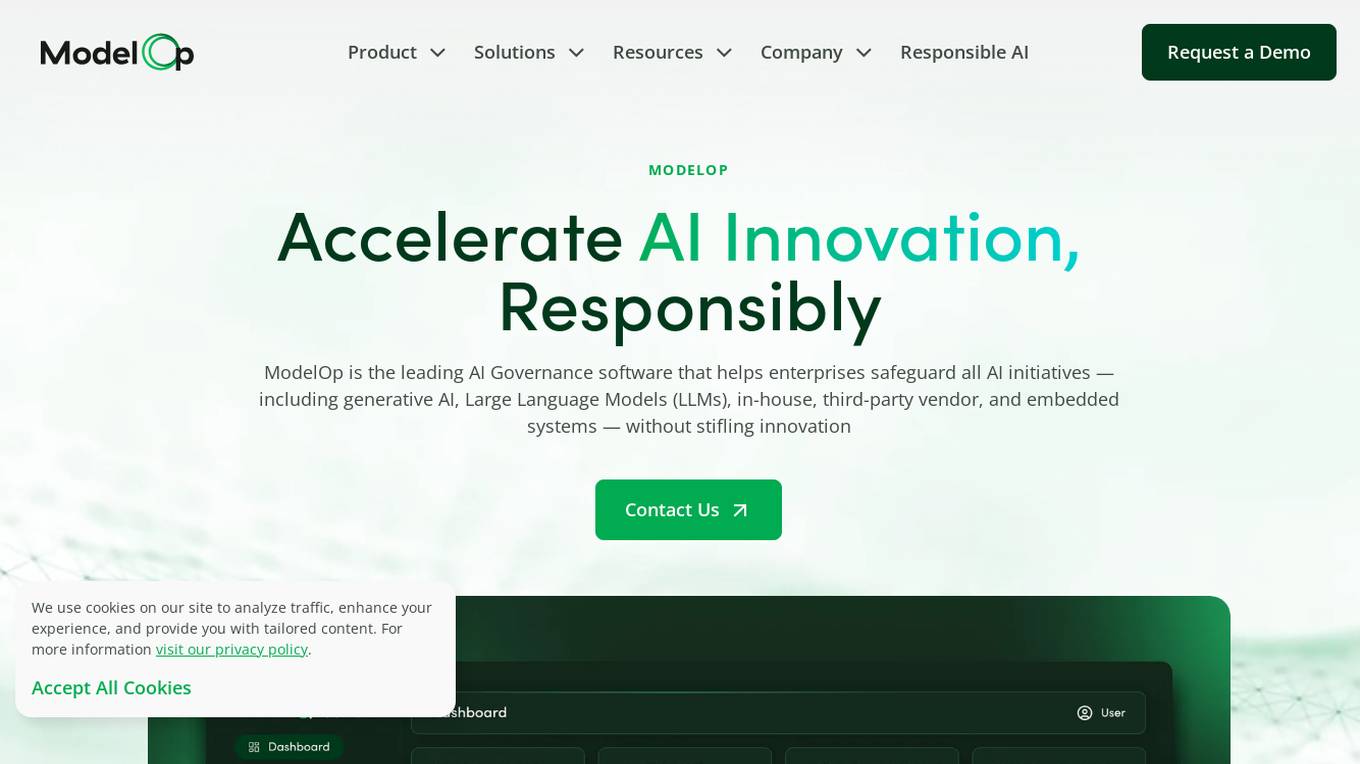
ModelOp
ModelOp is the leading AI Governance software for enterprises, providing a single source of truth for all AI systems, automated process workflows, real-time insights, and integrations to extend the value of existing technology investments. It helps organizations safeguard AI initiatives without stifling innovation, ensuring compliance, accelerating innovation, and improving key performance indicators. ModelOp supports generative AI, Large Language Models (LLMs), in-house, third-party vendor, and embedded systems. The software enables visibility, accountability, risk tiering, systemic tracking, enforceable controls, workflow automation, reporting, and rapid establishment of AI governance.
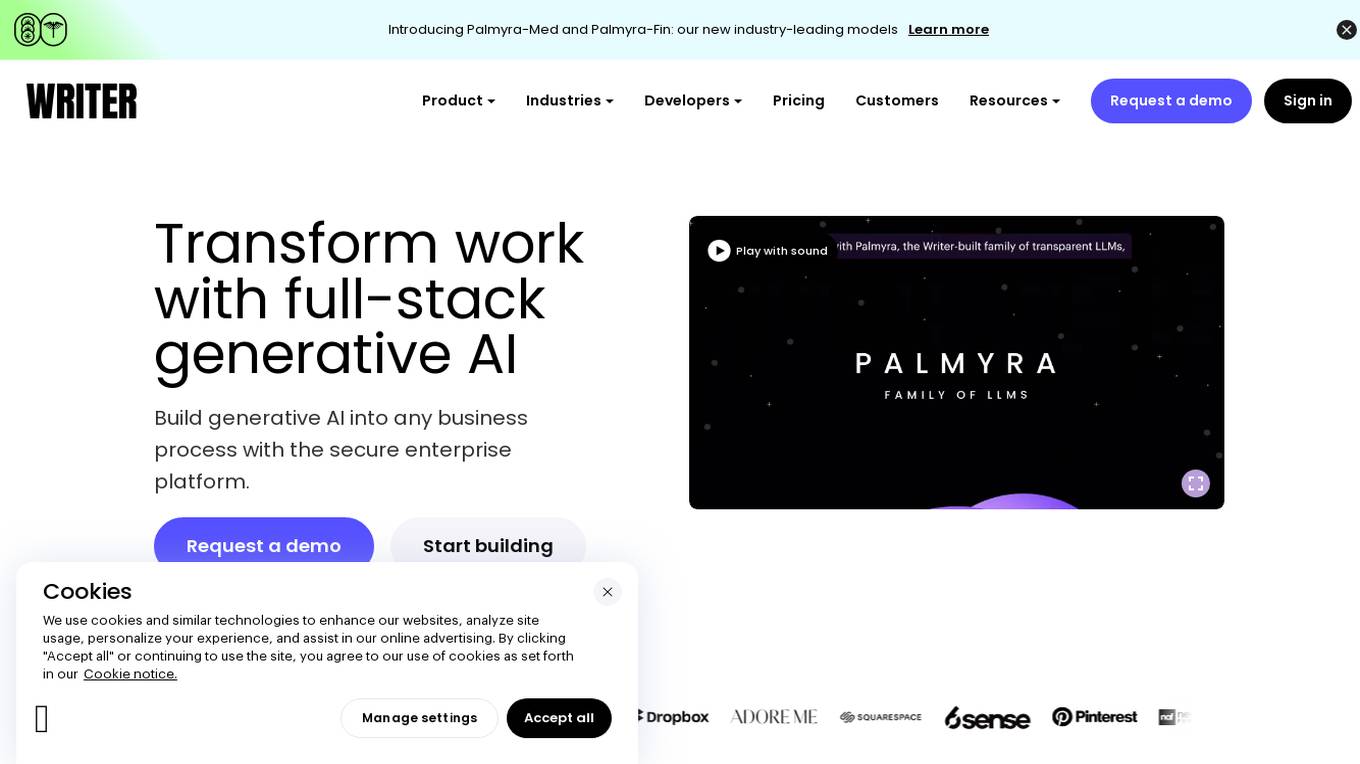
Writer
Writer is a full-stack generative AI platform that offers industry-leading models Palmyra-Med and Palmyra-Fin. It provides a secure enterprise platform to embed generative AI into any business process, enforce legal and brand compliance, and gain insights through analysis. Writer's platform abstracts complexity, allowing users to focus on AI-first workflows without the need to maintain infrastructure. The platform includes Palmyra LLMs, Knowledge Graph, and AI guardrails to ensure quality, control, transparency, accuracy, and security in AI applications.
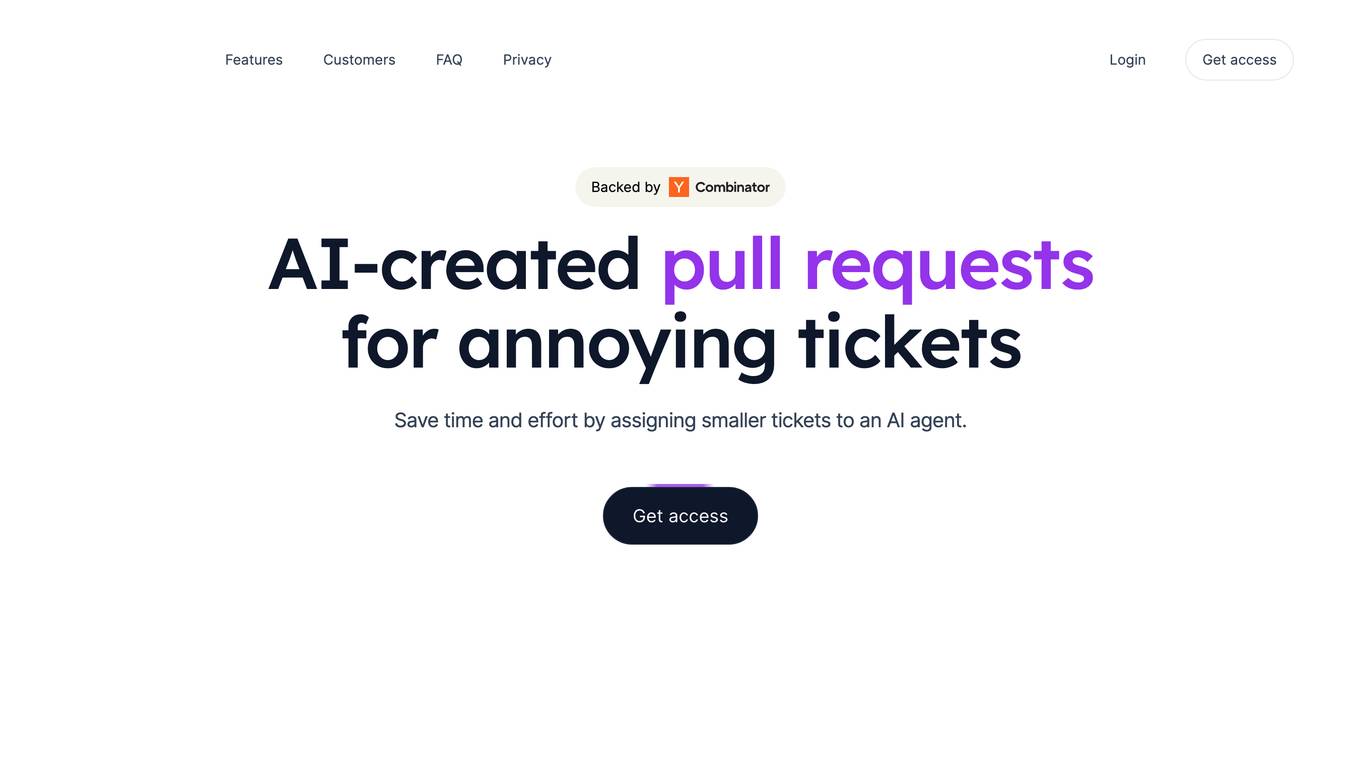
Tusk
Tusk is an AI testing platform that helps users with API, unit, and integration testing. It leverages AI-enabled tests to prevent regressions, cover edge cases, and generate verified test cases for faster and safer shipping. Tusk offers features like shift-left testing, autonomous testing, self-healing tests, and code coverage enforcement. It is trusted by engineering leaders at fast-growing companies and aims to halve engineering release cycles by catching bugs early. The platform is designed to provide high-quality tests to reach coverage goals and increase code quality.

Loti
Loti is an online protection tool designed for public figures, including major artists, athletes, executives, and creators. It scans the internet daily to identify instances where the user's face or voice appear, takes down infringing accounts and content, and recaptures revenue. Loti offers features such as protecting against fake accounts and deepfakes, enforcing licensing agreements, and detecting and eliminating fake social media accounts. It is a valuable tool for managing and safeguarding a public figure's online presence and brand image.
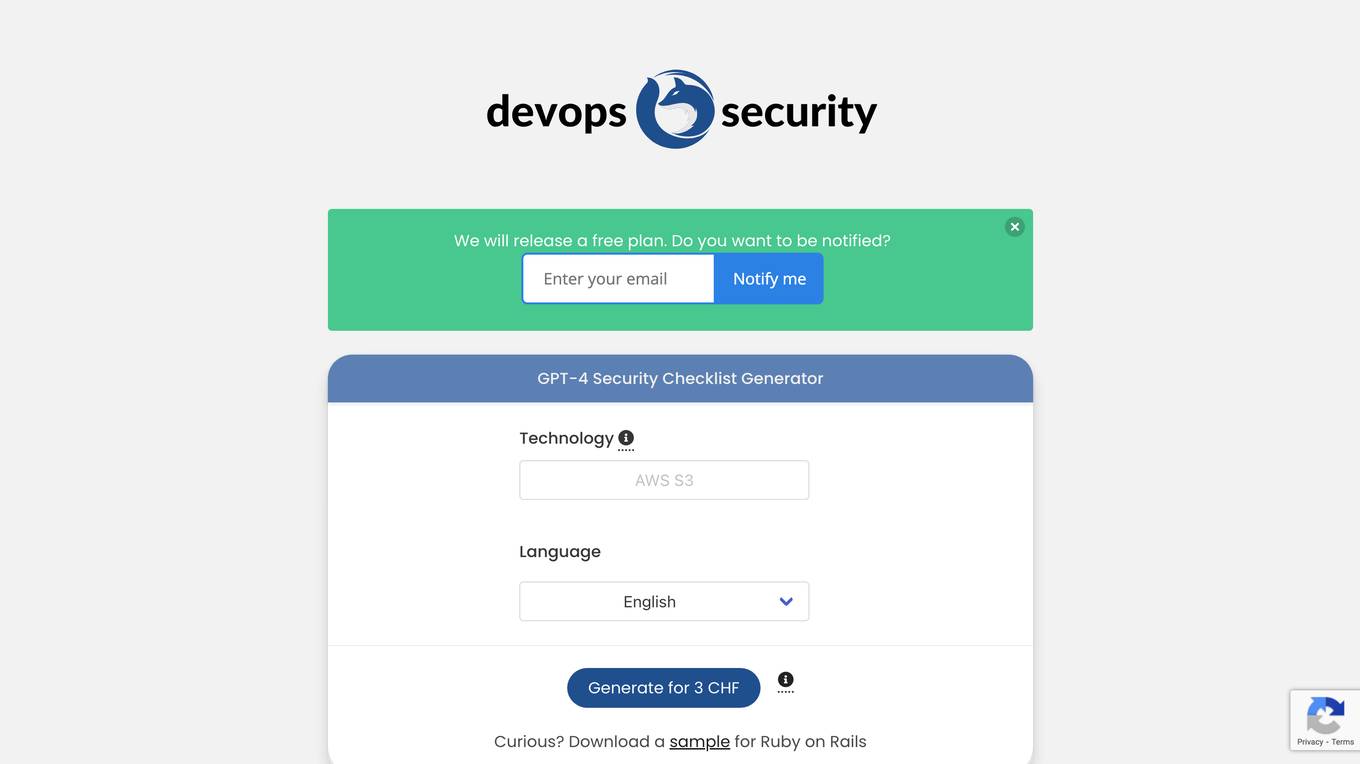
DevOps Security Platform
DevOps Security Platform is an AI-native security tool designed to automate security requirements definition, enforcement, risk assessments, and threat modeling. It helps companies secure their applications by identifying risks early in the Software Development Lifecycle and enforcing security measures before go-live. The platform offers innovative features, customization options, and integrations with existing tools to streamline security processes.
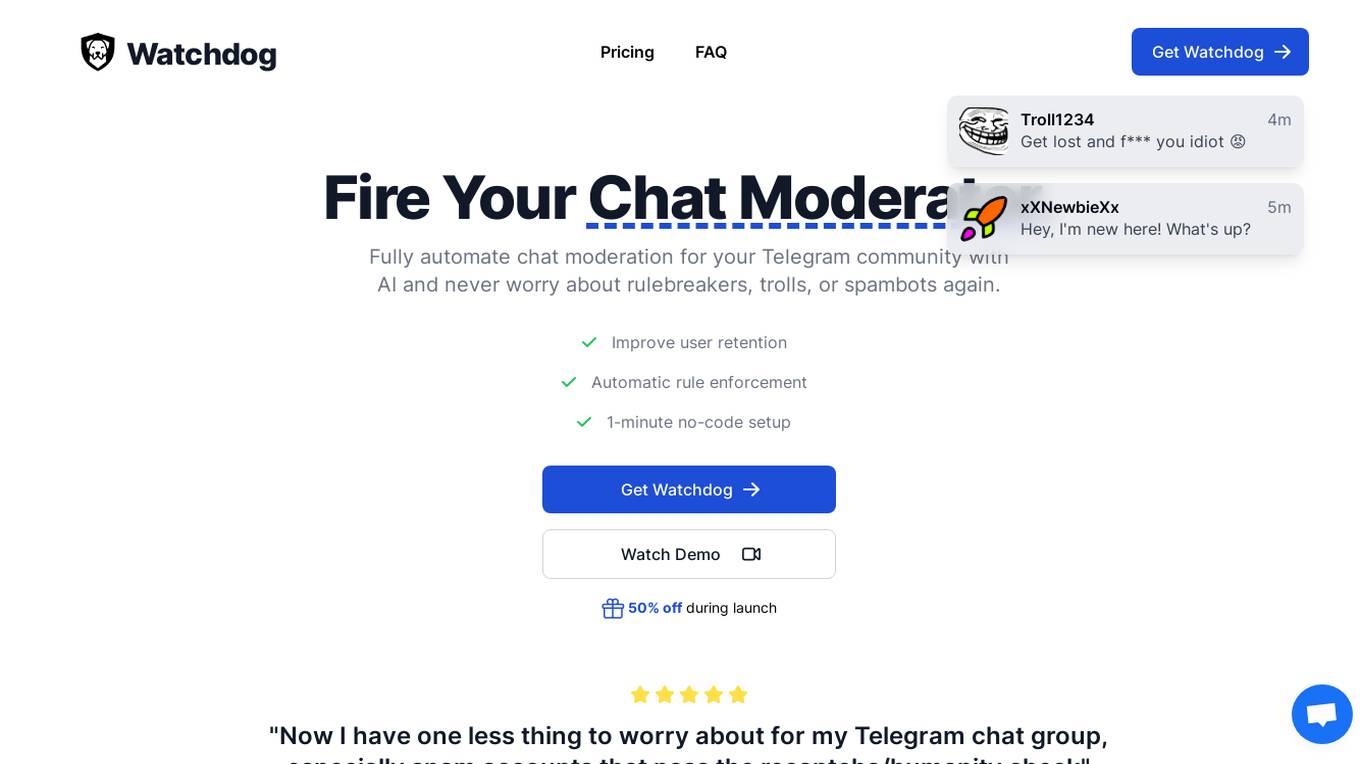
Watchdog
Watchdog is an AI-powered chat moderation tool designed to fully automate chat moderation for Telegram communities. It helps community owners tackle rulebreakers, trolls, and spambots effortlessly, ensuring consistent rule enforcement and user retention. With features like automatic monitoring, customizable rule enforcement, and quick setup, Watchdog offers significant cost savings and eliminates the need for manual moderation. The tool is developed by Ben, a solo developer, who created it to address the challenges he faced in managing his own community. Watchdog aims to save time, money, and enhance user experience by swiftly identifying and handling rule violations.
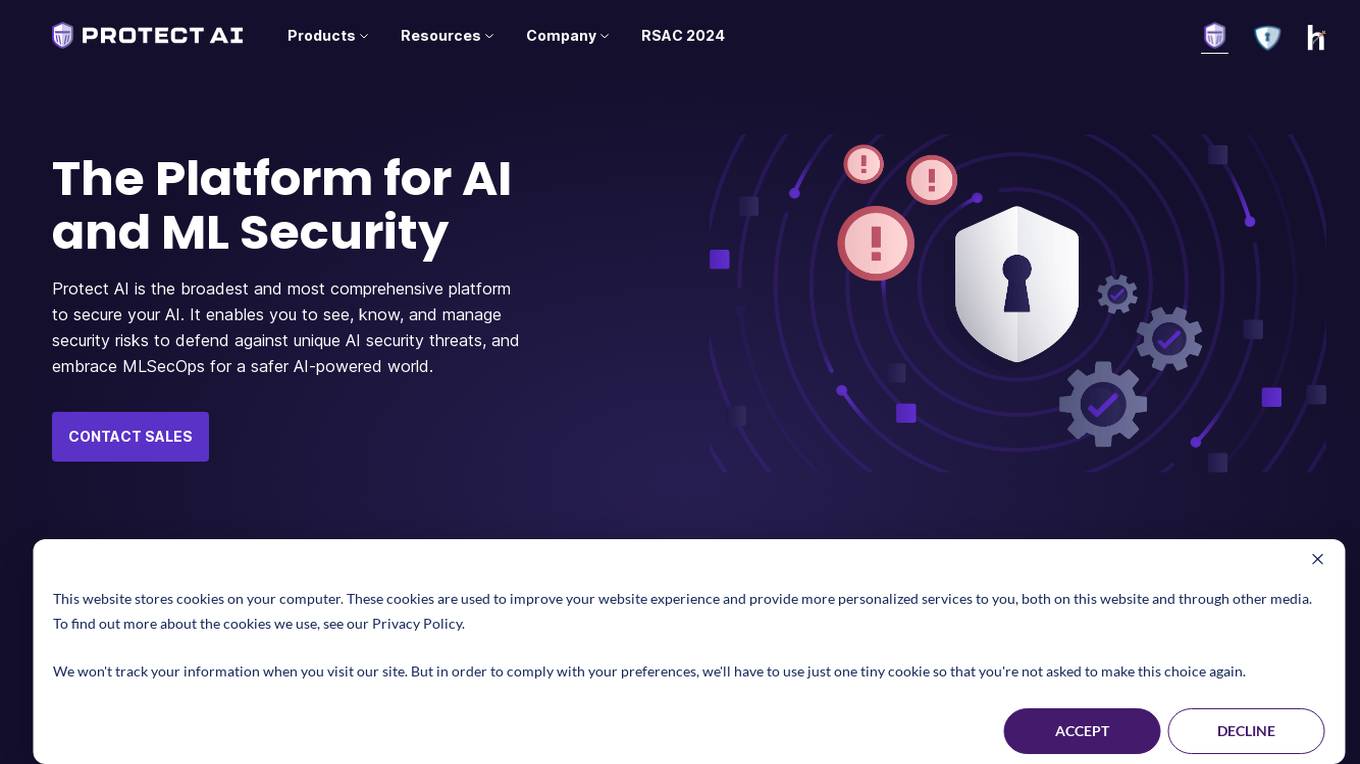
Protect AI
Protect AI is a comprehensive platform designed to secure AI systems by providing visibility and manageability to detect and mitigate unique AI security threats. The platform empowers organizations to embrace a security-first approach to AI, offering solutions for AI Security Posture Management, ML model security enforcement, AI/ML supply chain vulnerability database, LLM security monitoring, and observability. Protect AI aims to safeguard AI applications and ML systems from potential vulnerabilities, enabling users to build, adopt, and deploy AI models confidently and at scale.
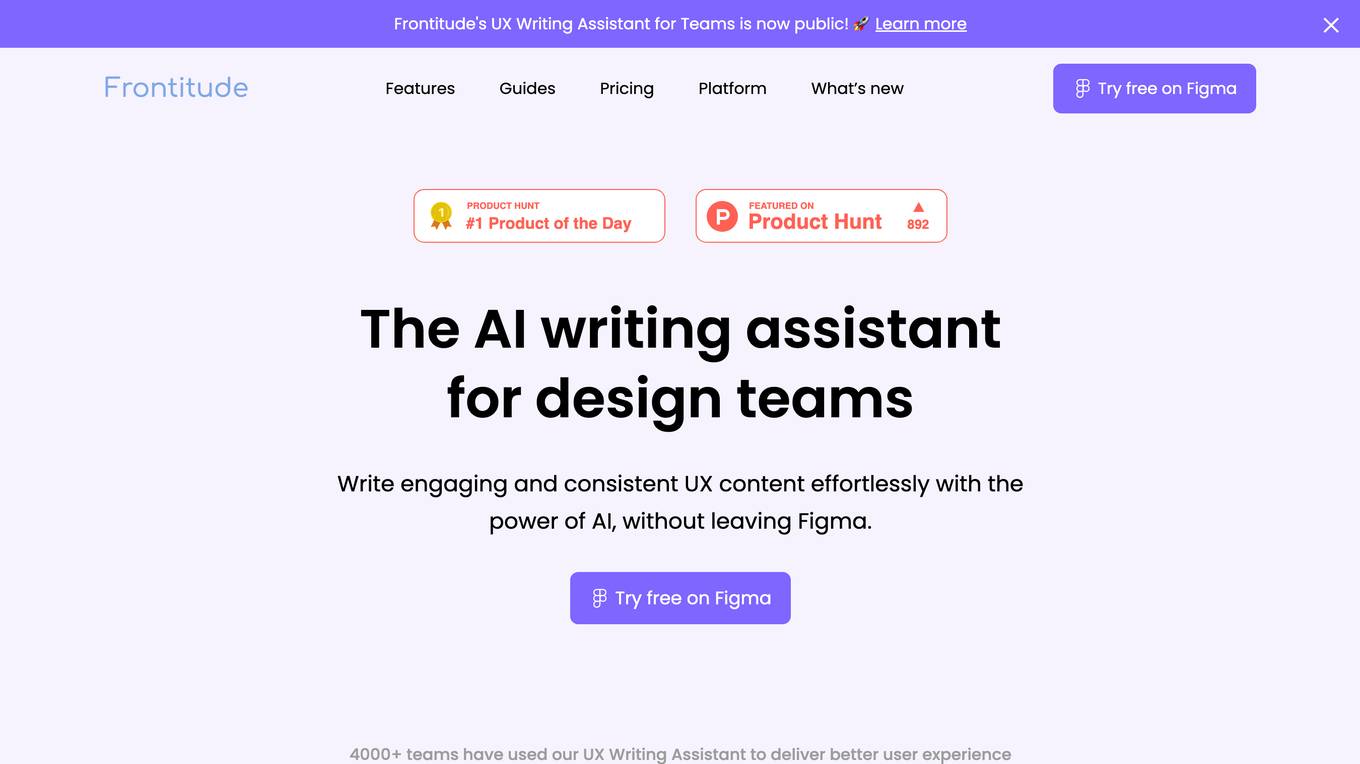
Frontitude
Frontitude is an AI writing assistant designed for design teams to create engaging and consistent UX content effortlessly within Figma. It integrates seamlessly with design workflows, providing copy suggestions inspired by best practices and world-class products. Frontitude streamlines design reviews, enforces content guidelines, and saves time by shortening review cycles. The tool is praised by product and content designers for its intuitive interface and ability to generate new ideas quickly. It ensures consistent voice-of-product and helps overcome writer's block, making content creation faster and more efficient.
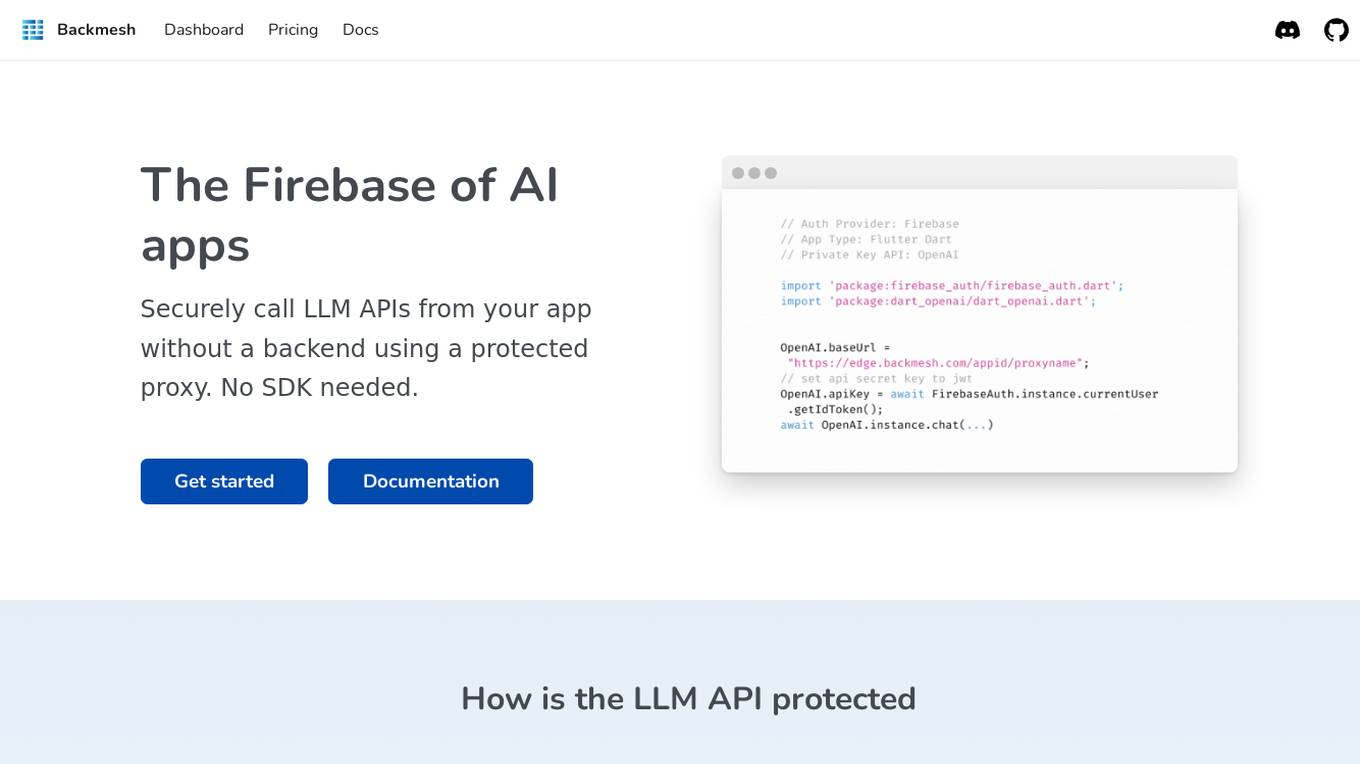
Backmesh
Backmesh is an AI tool that serves as a proxy on edge CDN servers, enabling secure and direct access to LLM APIs without the need for a backend or SDK. It allows users to call LLM APIs from their apps, ensuring protection through JWT verification and rate limits. Backmesh also offers user analytics for LLM API calls, helping identify usage patterns and enhance user satisfaction within AI applications.
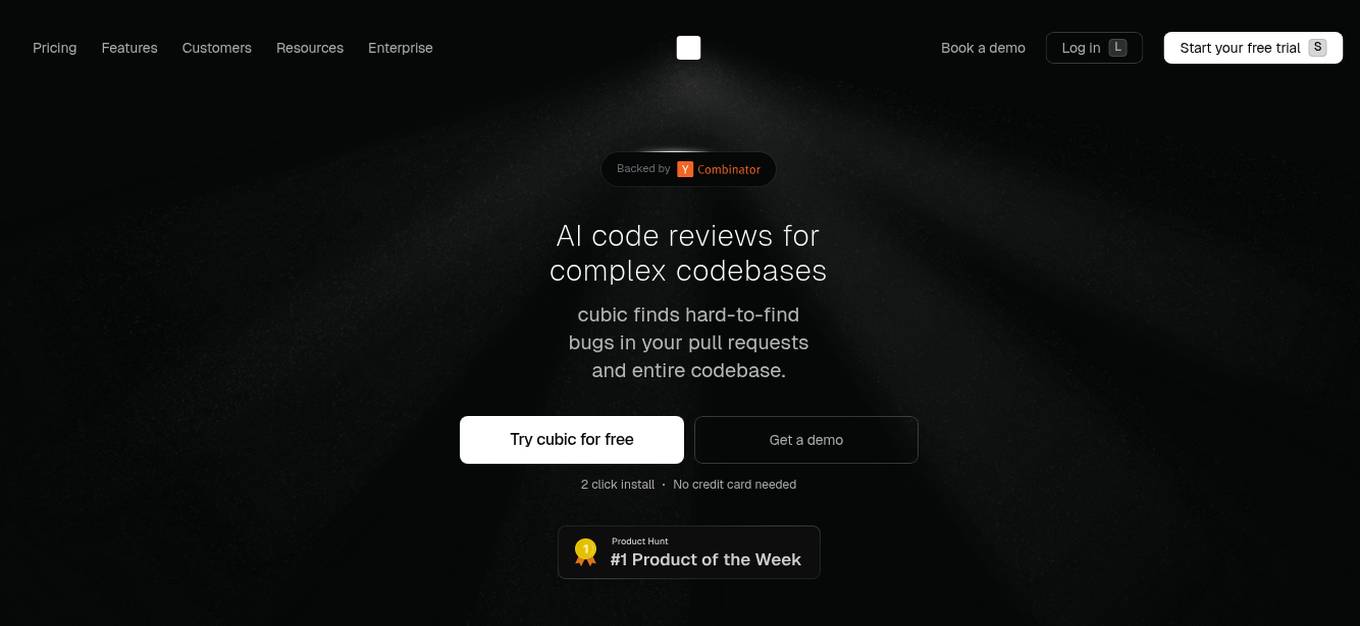
cubic
cubic is an AI-native code-review platform that leverages artificial intelligence to conduct code reviews for complex codebases. It helps teams identify hard-to-find bugs in pull requests and the entire codebase, providing context-aware feedback and summaries to enhance the review process. cubic continuously scans codebases for bugs and vulnerabilities, triages issues, enforces coding standards, and learns from team feedback to improve over time. The platform offers features like automatic PR descriptions, one-click issue fixes, intelligent diff ordering, and visualizing high-level changes. With a focus on security and privacy, cubic ensures that code remains secure and private by not storing or training AI on the code. It supports various programming languages and offers different pricing plans tailored to different team sizes and needs.
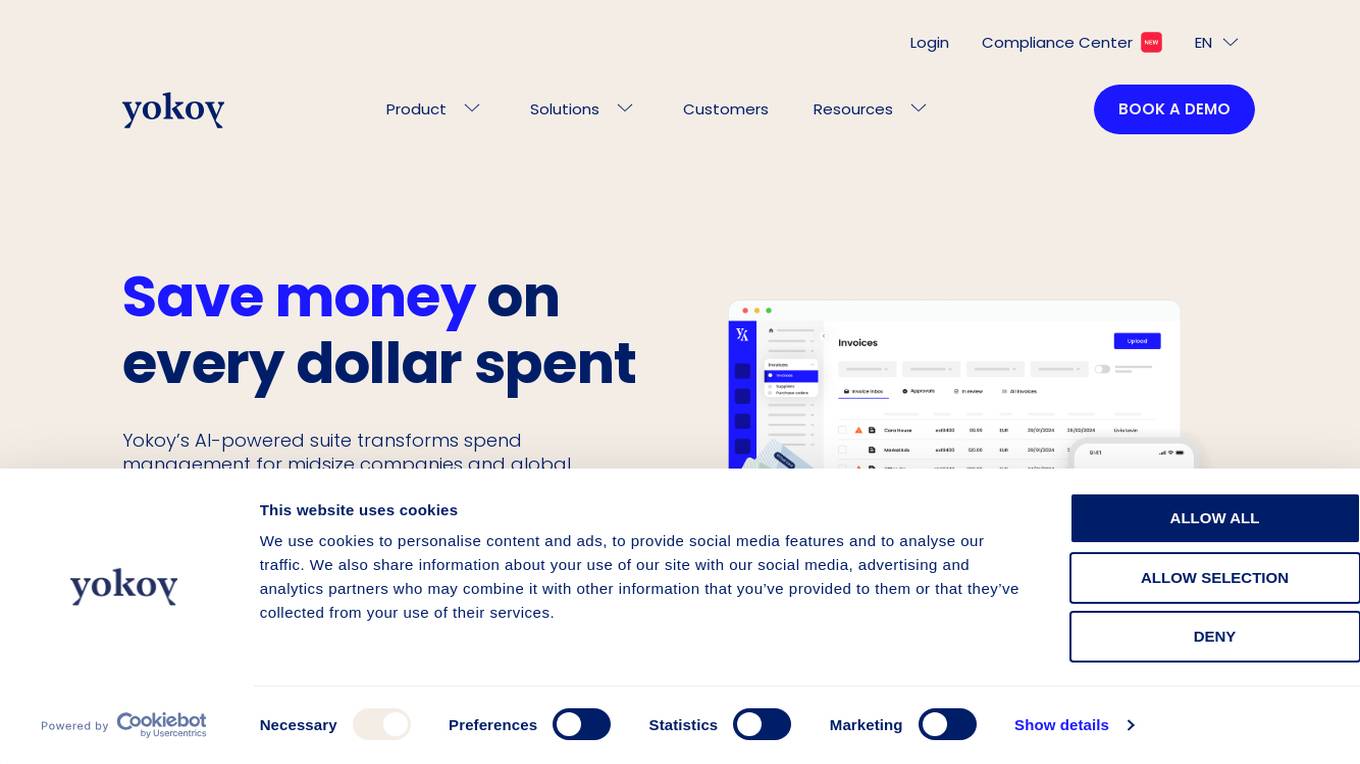
Yokoy
Yokoy is an AI-powered spend management suite that helps midsize companies and global enterprises save money on every dollar spent. It automates accounts payable and expense management tasks, streamlines global data, keeps spend under control, and enforces compliance. Yokoy's API facilitates seamless integrations with enterprise-level systems for end-to-end automation across entities and geographies.
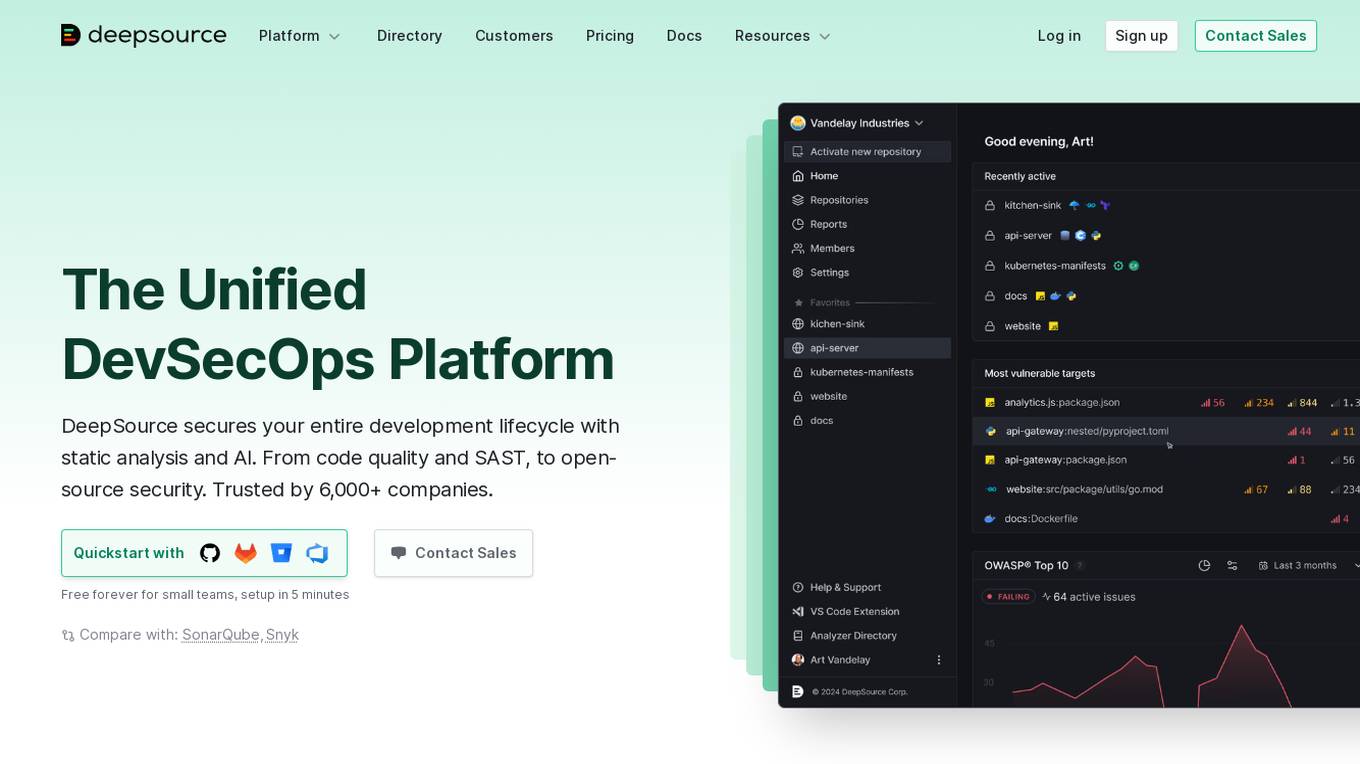
DeepSource
DeepSource is a Unified DevSecOps Platform that secures the entire development lifecycle with static analysis and AI. It offers code quality and SAST, open-source security, and is trusted by over 6,000 companies. The platform helps in finding and fixing security vulnerabilities before code is merged, with a low false-positive rate and customizable security gates for pull requests. DeepSource is built for modern software development, providing features like Autofix™ AI, code coverage, and integrations with popular tools like Jira and GitHub Issues. It offers detailed reports, issue suppression, and metric thresholds to ensure clean and secure code shipping.
0 - Open Source AI Tools
11 - OpenAI Gpts
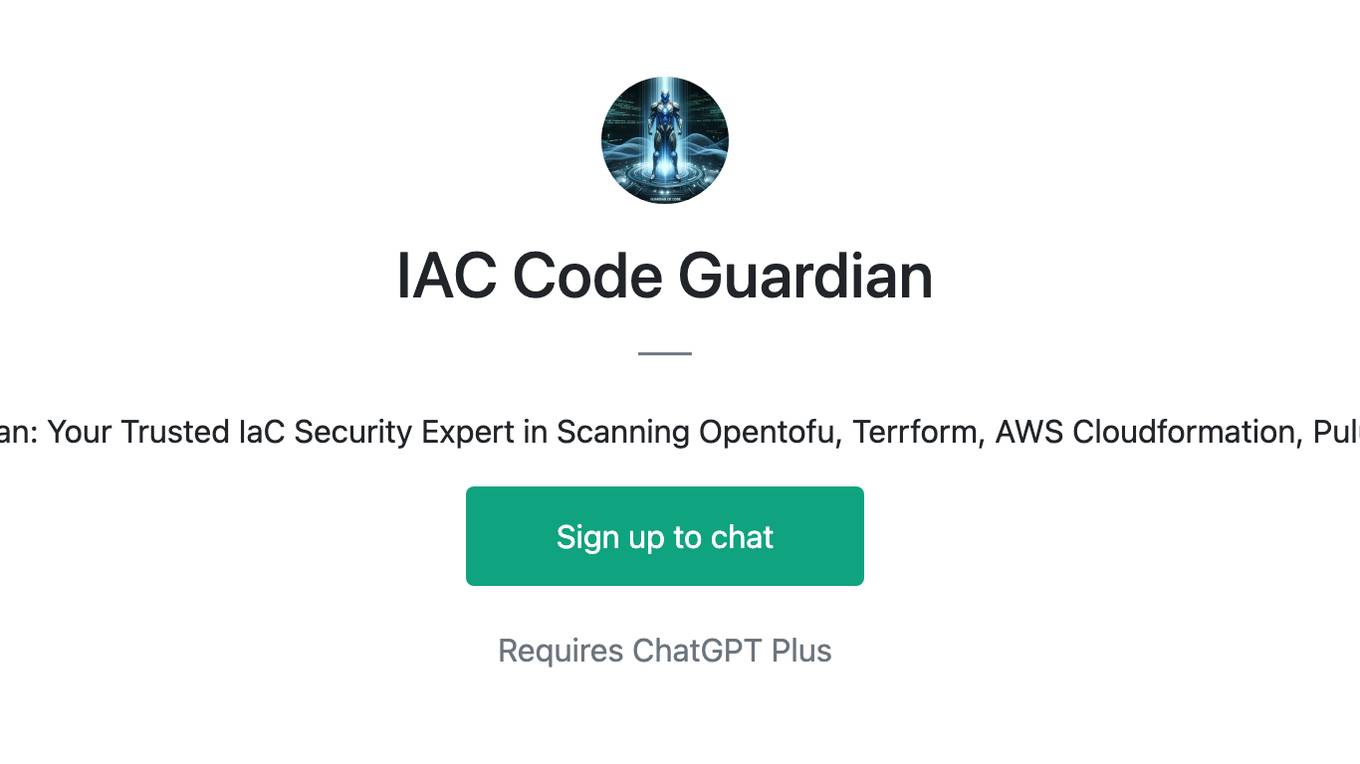
IAC Code Guardian
Introducing IAC Code Guardian: Your Trusted IaC Security Expert in Scanning Opentofu, Terrform, AWS Cloudformation, Pulumi, K8s Yaml & Dockerfile

Boundary Coach
Boundary Coach is now fine-tuned and ready for use! It's an advanced guide for assertive boundary setting, offering nuanced advice, practical tips, and interactive exercises. It will provide tailored guidance, avoiding medical or legal advice and suggesting professional help when needed.

Term of Service Drafting Master
Legal Expert in drafting Term of Service (Powered by LegalNow ai.legalnow.xyz)
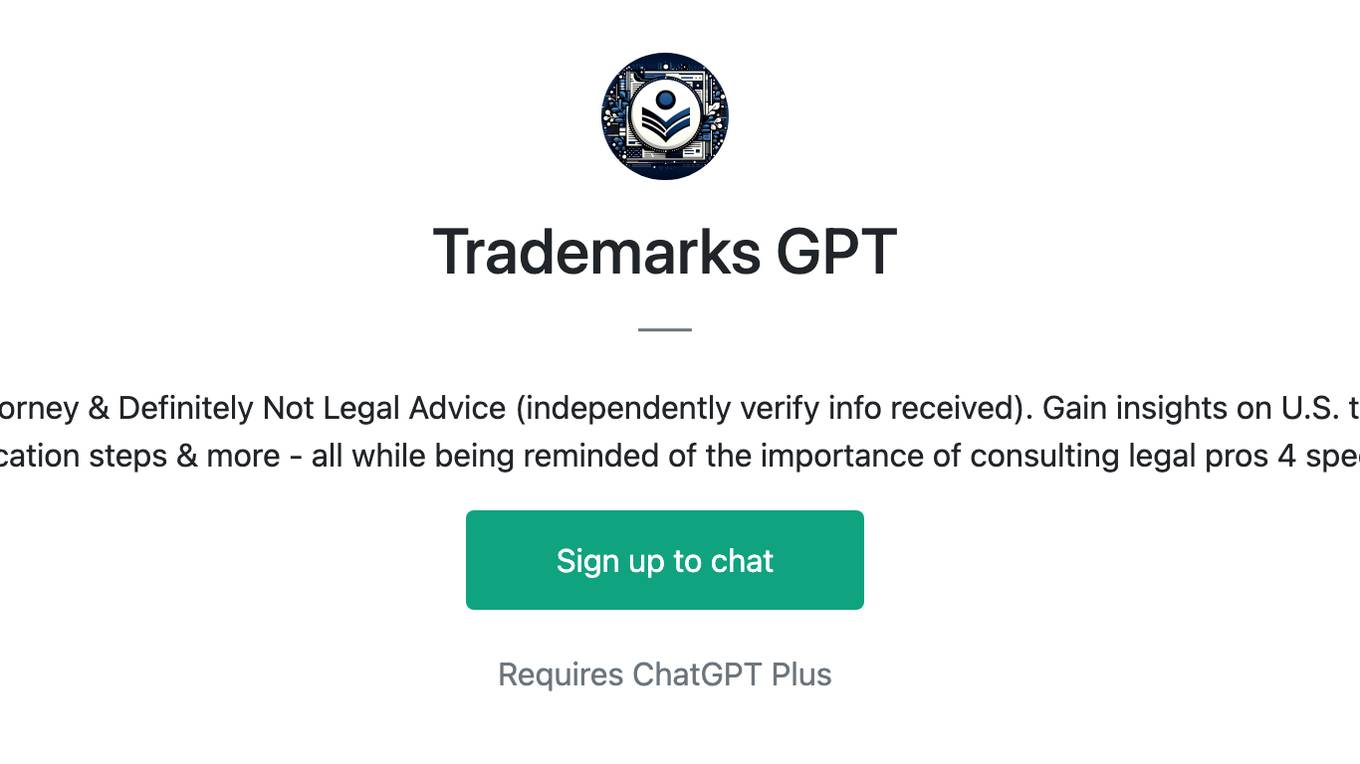
Trademarks GPT
Trademark Process Assistant, Not an Attorney & Definitely Not Legal Advice (independently verify info received). Gain insights on U.S. trademark process & concepts, USPTO resources, application steps & more - all while being reminded of the importance of consulting legal pros 4 specific guidance.

Seabiscuit IP Guardian
Secure Your Intellectual Property Innovations: Specializes in IP creation, management, and protection, offering expert guidance in U.S. copyright, trademark, patent, and trade secret laws ensuring your intellectual property is well-protected and leveraged effectively. (v1.15)
